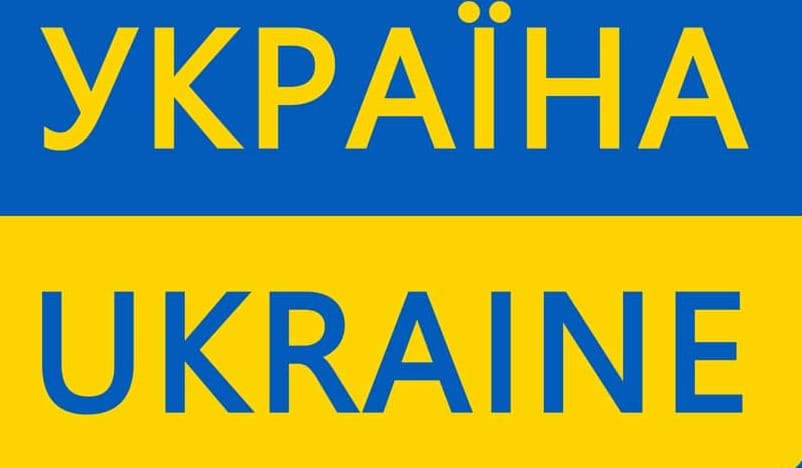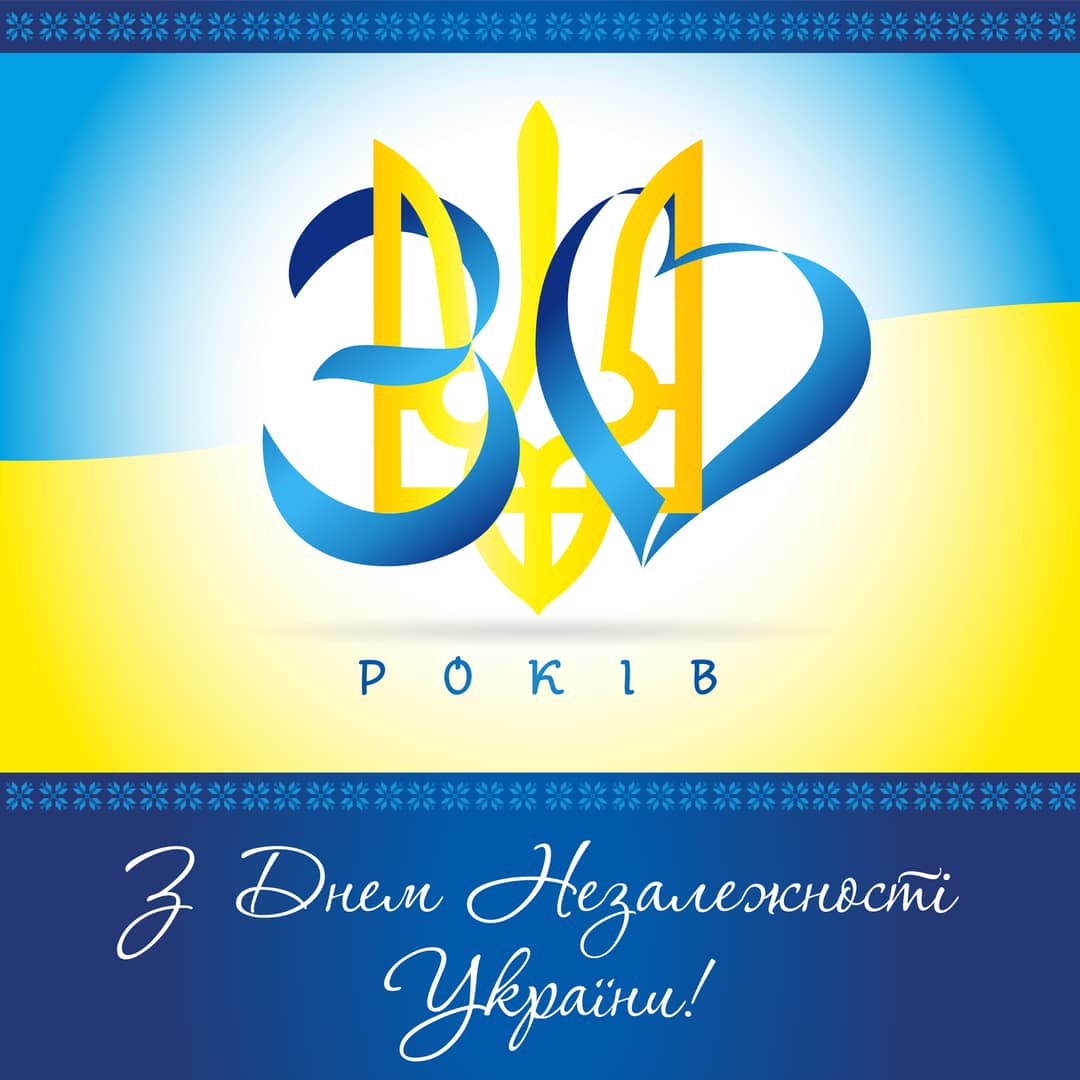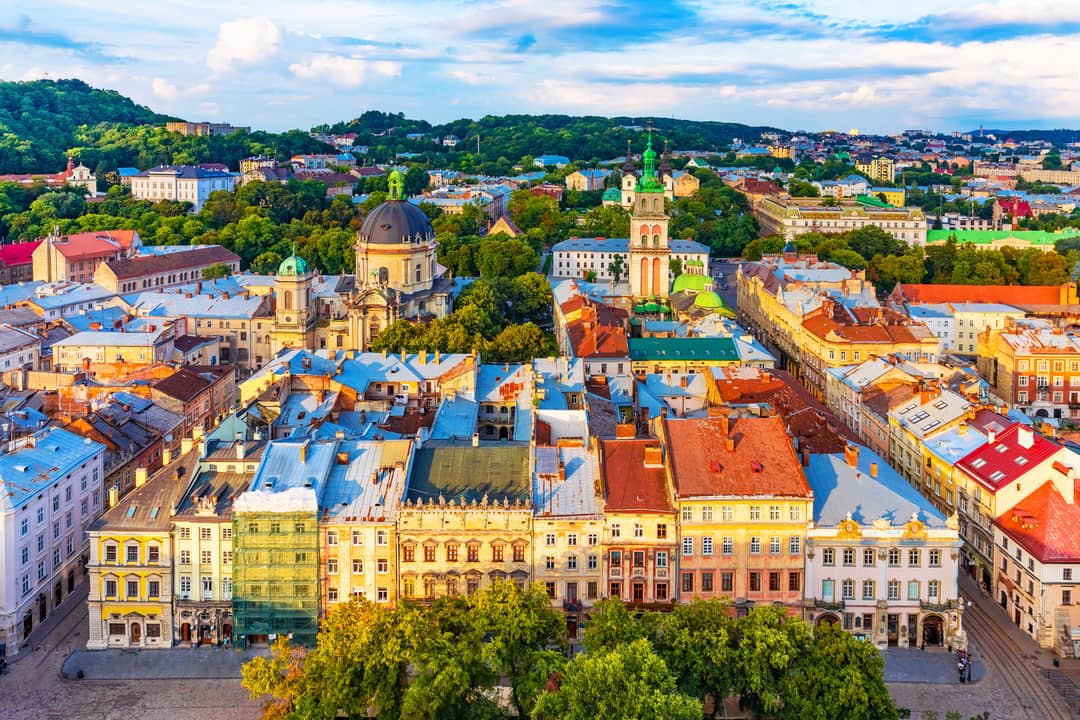
If you remember growing up hearing the phrase “The Ukraine”, you’re not imagining it. This was how most Western sources once referred to Ukraine, but today it’s an archaic form that has long been disavowed.
The authoritative form since Ukrainian independence – simply “Ukraine” without the definite article – is a sensitive issue, and entire academic works on the history of modern Ukraine have been framed around this linguistic shift.
Let us kindly help you to use the words related to #Ukraine correctly.
- Ukraine, not “the” Ukraine
- Kyiv, not Kiev
These are the only politically correct terms that express respect to the country and its nation.
Be smart and avoid Soviet style clichés🧐 pic.twitter.com/C1WrSOo8ay— UKR Embassy in USA (@UKRintheUSA) September 28, 2019
While “The Ukraine” is an archaic form in English, it still frequently appears in Australian media and political commentary on the Russian invasion of Ukraine. Observance of correct terminology is all the more relevant given the Putin regime’s repeated, mendacious denials of the very existence of Ukrainian identity.
What are the politics of the ‘The Ukraine’ form?
The Russian Empire and the Soviet Union preferred “The Ukraine” in English, and this was not coincidental. The Russian Empire denied the existence of any Ukrainian identity, banning virtually all publications written in Ukrainian.
The Soviet Union, which was constituted as a federal state in 1922 because of Ukrainian demands for autonomy, did not deny the existence of Ukrainian identity outright, but severely, and often violently, limited expressions of Ukrainian linguistic, cultural and political autonomy.
While “The Ukraine” was common in English before Ukrainian independence in 1991, many academic and Ukrainian diaspora sources preferred to use simply “Ukraine” well before this.
When then-US president George H.W. Bush visited Kyiv in August 1991, in the final months of the USSR’s existence, he irked the Soviets by using “Ukraine” without the definite article rather than “The Ukraine” as the Soviet regime preferred.
In a December 1991 referendum, more than 92% of Ukrainian voters voted for independence, ensuring the dissolution of the USSR. The constitution of independent Ukraine subsequently enshrined the official use of “Ukraine”.
A matter of language
This linguistic dispute is complicated by the fact that the Ukrainian and Russian languages don’t actually have grammatical articles; they have no exact words meaning “the” or “a”.
The root use in English of “The Ukraine” is the historically and politically charged Russian choice of preposition to refer to Ukraine. In Russian, the preposition used to refer to almost all sovereign states in the locative form is “v” – so, one is v Rossii (in Russia), v Anglii (in England), or v Avstralii (in Australia).

The use of “Ukraine”, rendered as "в Україні" in Ukrainian, is entirely consistent with naming conventions regarding sovereign states, and has been authoritative since Ukraine’s independence in December 1991.
However, Putin and his regime persist with the archaic form “na Ukraine”. In Russian, the preposition “na” is most commonly associated with non-specific geographical features. So, one is na sele (in the countryside), na ozere (at the lake), and na granitse (on the border).
Read more: Cyberwar: Keeping track of the battle to keep Ukraine online
This stubborn insistence on the archaism “na Ukraine” reflects the false linguistic and political trope that Ukraine is an indeterminate “border region”, lacking an independent identity, rather than a sovereign state.
Despite this, use of the correct preposition is making headway among Russian speakers, in recognition of Ukrainian sovereignty. Putin’s refusal to use the correct v Ukraine form reflects his political immaturity and embrace of a belligerent, neo-imperialist attitude towards Ukraine.
From Kiev to Kyiv
Since Ukraine’s assumption of sovereignty, the preferred English names of Ukrainian cities are derived from Ukrainian Cyrillic rather than Russian Cyrillic.
Ukrainian and Russian are markedly different languages, with recent research indicating a level of similarity on par with English and Dutch, and Ukrainian has several letters and sounds that Russian lacks. Important examples of preferred nomenclature when writing about Ukrainian cities include:
- Kyiv, not Kiev
- Lviv, not Lvov
- Kharkiv, not Kharkov
- Odesa, not Odessa
- Dnipro, not Dnipropetrovsk
This is reflected in some media style guides:
- The 2020-2022 Associated Press style guide illustrates the change of preferred terminology from Kiev to Kyiv.
- The ABC style guide on Ukraine now lists Ukrainian romanisations for place names – so, Kyiv, Lviv, Odesa
Of course, Ukraine is not an ethnostate, but has a complex and diverse heritage, as do most inhabited places worldwide. To take just one example, the city of Lviv in Ukraine’s west, a vibrant cultural capital known for its elegant historical architecture, is known as Lwów in Polish, Lvov or L’vov in Russian, Lemberg in German, and Lemberg or Lemberik in Yiddish.

In Crimea, a Ukrainian region under illegal Russian occupation since 2014, place names such as Bakhchysarai and Balaklava (yes, the origin of the name of the Melbourne suburb) are not Slavic in origin at all, but derive from the Turkic language of Crimea’s indigenous people, the Crimean Tatars.
In Ukraine’s south, cities with Turkic names such as Tatarbunary and Izmail attest to the Ottoman Empire’s long presence in Ukrainian history.
This may seem abstract to Australians, but given our settler-colonial origins we should know that the use of preferred terminology is highly and politically charged, and frequently shifts. For example, the antiquated “Ayers Rock” has changed to the now-authoritative Uluru in recognition of our First Nations peoples.
The correct use of nomenclature is a critical aspect of national self-determination, sovereignty and decolonisation.
Use of “The Ukraine” in the modern era is as archaic as referring to Beijing as Peking, Mumbai as Bombay, or Istanbul as Constantinople.
It’s far too soon to know just how much devastation has been wrought by Russia’s invasion of Ukraine, but in the meantime, let’s put “The Ukraine” to rest for good.





